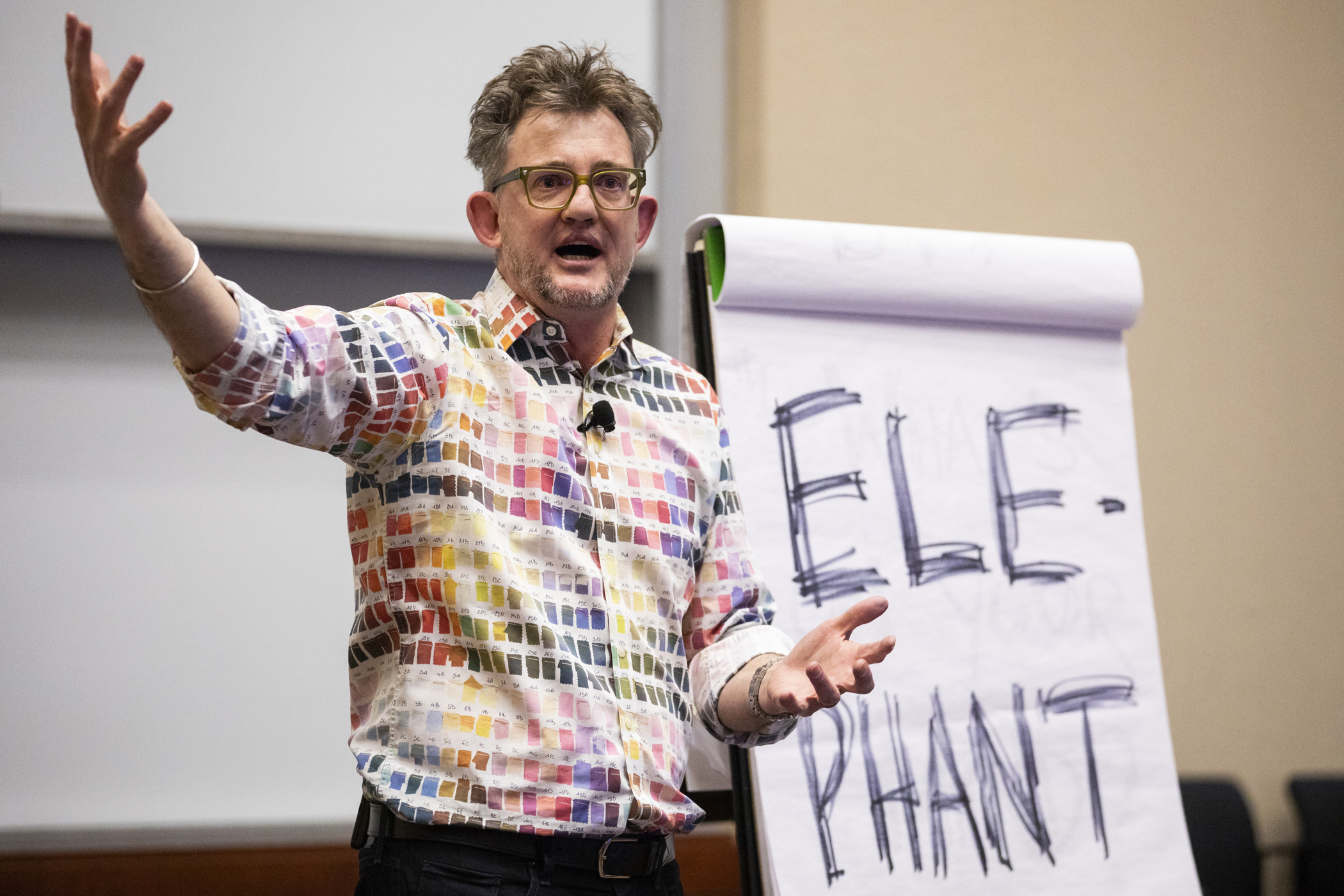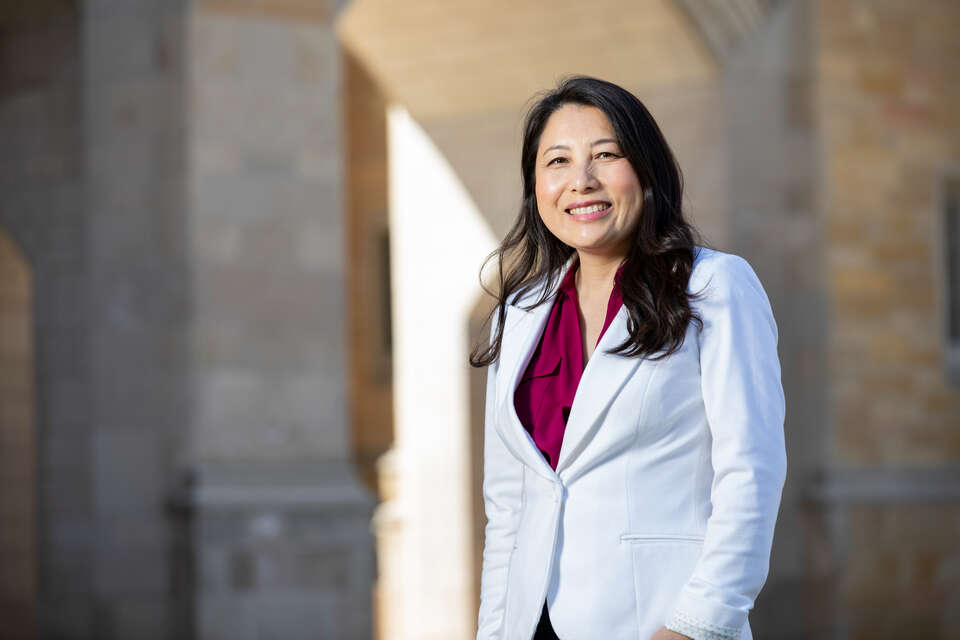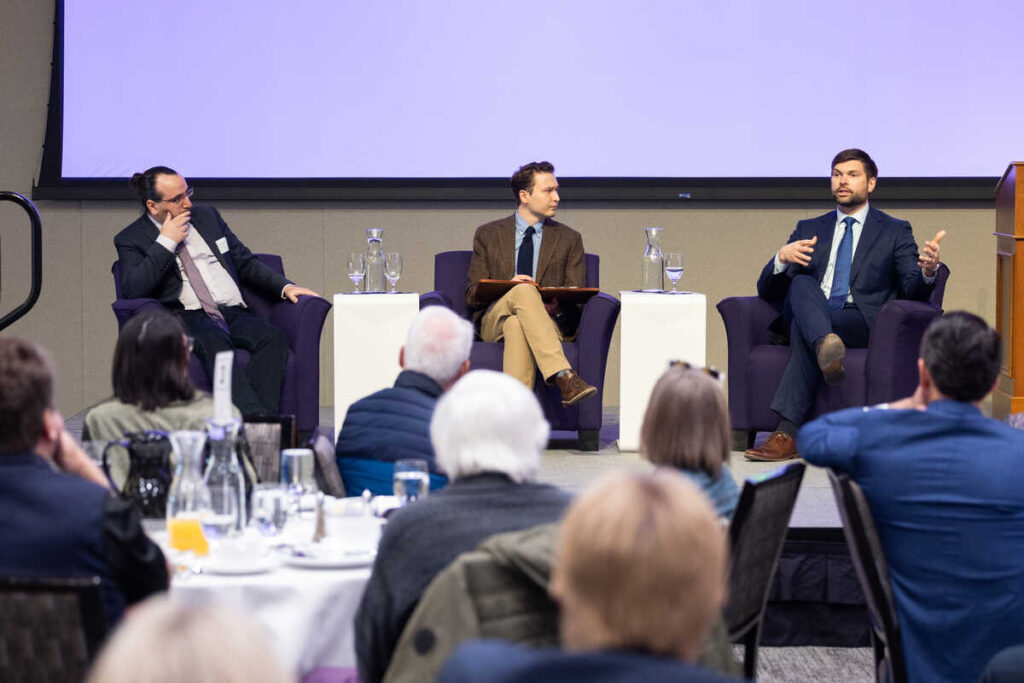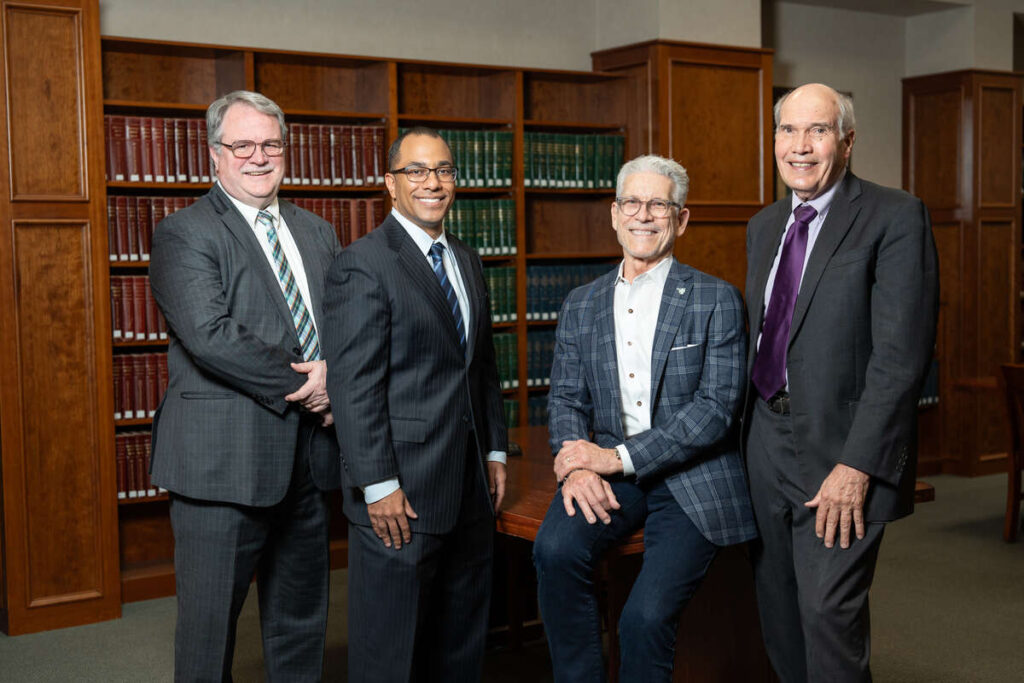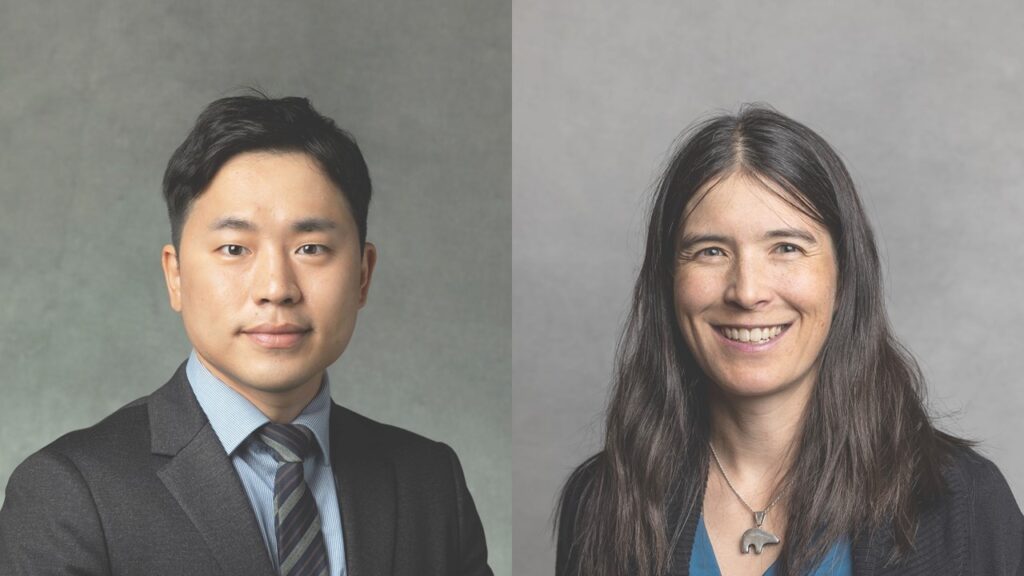The Opus College of Business welcomed more than 200 attendees to the Executive Coaching in Organizations Conference on Jan. 25. Michael Bungay Stanier was featured as a keynote speaker at the event, teaching the audience about how learning effective coaching strategies can make them more successful leaders within their organizations. These points are elaborated upon in Bungay Stanier’s latest book, The Coaching Habit: Say Less, Ask More & Change the Way You Lead Forever.
Bungay Stanier is an enthusiastic speaker and the author of multiple books on coaching and leadership within organizations. Born and raised in Australia, Bungay Stanier was a Rhodes Scholar at Oxford and now lives in Toronto. He is the founder and CEO of Box of Crayons, which aims to help organizations develop more effective leaders. In The Coaching Habit, Bungay Stanier works to help leaders improve their coaching skills.
Recurring themes within The Coaching Habit include the idea of retraining yourself to change old habits by forming new ones, especially within the context of humility. Rather than assuming you know the answer to a problem, you must instead focus on actively listening to the person speaking to you. This will help you guide others to find their own answers and fix problems at the source instead of simply treating symptoms. It’s important to recognize that you don’t always have all of the answers, and not to be afraid to ask questions in order to figure out a solution. Through changing these current habits, you will become a more effective coach.
1. The Kickstart Question – “What’s on your mind?”
Starting with this question means avoiding small talk and immediately getting to the point of a conversation. It also means isolating the source of the conflict that needs to be addressed – whether it’s developing out of projects, people or patterns. As Bungay Stanier puts it, “The question releases the challenge from where it may well be rattling around in a slightly unformed and unclear way that is, unbeknownst to you, narrowing the way you’re seeing the world.”
2. The AWE Question – “And what else?”
This question should be asked as a follow-up to the other questions within the list. “With seemingly no effort, it creates more – more wisdom, more insights, more self-awareness, more possibilities – out of thin air,” Bungay Stanier writes. “There are three reasons it has the impact that it does: more options can lead to better decisions; you rein yourself in; and you buy yourself time.”
3. The Focus Question – “What’s the real challenge here for you?”
Through asking this question, you take the time to identify the problems that may be hiding beneath the surface of an issue. This question is directly centered on the individual you are speaking with, and it offers clarification on the situation at hand that may be crucial to finding a long-term solution. “This is the question that will help slow down the rush to action, so you spend time solving the real problem, not just the first problem.”
4. The Foundation Question – “What do you want?”
“The illusion that both parties to the conversation know what the other wants is pervasive, and it sets the stage for plenty of frustrating exchanges,” Bungay Stanier writes. Although it can be difficult to articulate one’s wants and needs, it’s better to be direct about them rather than simply making assumptions – that's where this question comes into play. In The Coaching Habit, Bungay Stanier delves into the different categories of needs and how understanding the underlying need driving a request can help a coach more effectively address a problem. He states that, “When we understand what the other wants, we’re in the middle of an interesting and worthwhile conversation.”
5. The Lazy Question – “How can I help?”
“We’re constantly leaping in to solve problems, jumping in to offer advice, taking over responsibilities that others should rightfully keep for themselves,” The Coaching Habit reads. Although these actions are completed with the best of intentions, they can have a negative effect. “You’re limiting opportunities for growth and for expanding the potential of those you’re working with.” Bungay Stanier makes the point that through asking this question, “You’re forcing your colleague to make a direct and clear request. … [and] it stops you from thinking that you know how best to help and leaping into action.” This will allow for further growth for your colleague and save you valuable time and effort that can be redirected toward other projects.
6. The Strategic Question – “If you’re saying Yes to this, what are you saying No to?”
Bungay Stanier writes that “A Yes is nothing without the No that gives it boundaries and form.” In asking this question, you are taking the time to critically evaluate what tasks you are actually committing to and what you are implicitly turning down. “What gets us into trouble is how quickly we commit, without fully understanding what we’re getting ourselves into or even why we’re being asked.” The key to fixing this? Learning to take more time before saying Yes, which is what this question encourages. Through asking what you are saying No to, “You’re asking people to be clear and committed to their Yes.”
7. The Learning Question – “What was most useful for you?”
“Your job as a manager and a leader is to help create the space for people to have those learning moments.” In order to ensure that the individual you are coaching is learning, it’s important that they take time to reflect on their experiences. Asking this question is a quick and easy way to encourage this habit. “I can tell you something, and it’s got a limited chance of making its way into your brain’s hippocampus, the region that encodes memory. If I can ask you a question and you generate the answer yourself, the odds increase substantially.”
For more detail on the seven questions featured in this article and how they relate to effective coaching, check out the full book by Michael Bungay Stanier, The Coaching Habit: Say Less, Ask More & Change the Way You Lead Forever, as well as boxofcrayons.com.
Learn more about becoming an effective coach through the Opus College of Business’ Graduate Certificate in Executive Coaching and The Coach Approach to Management program.
